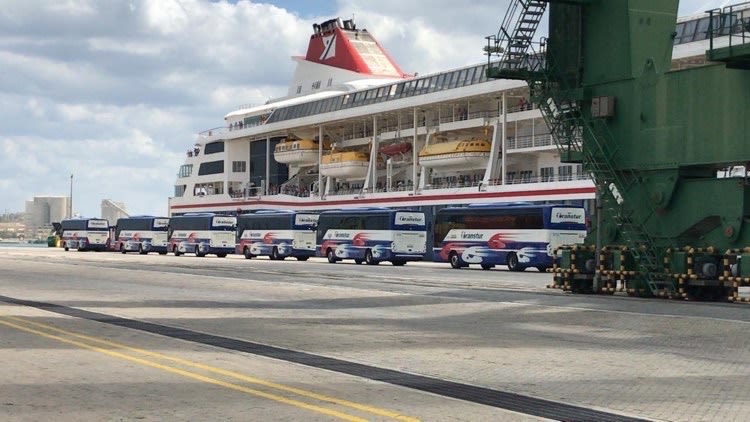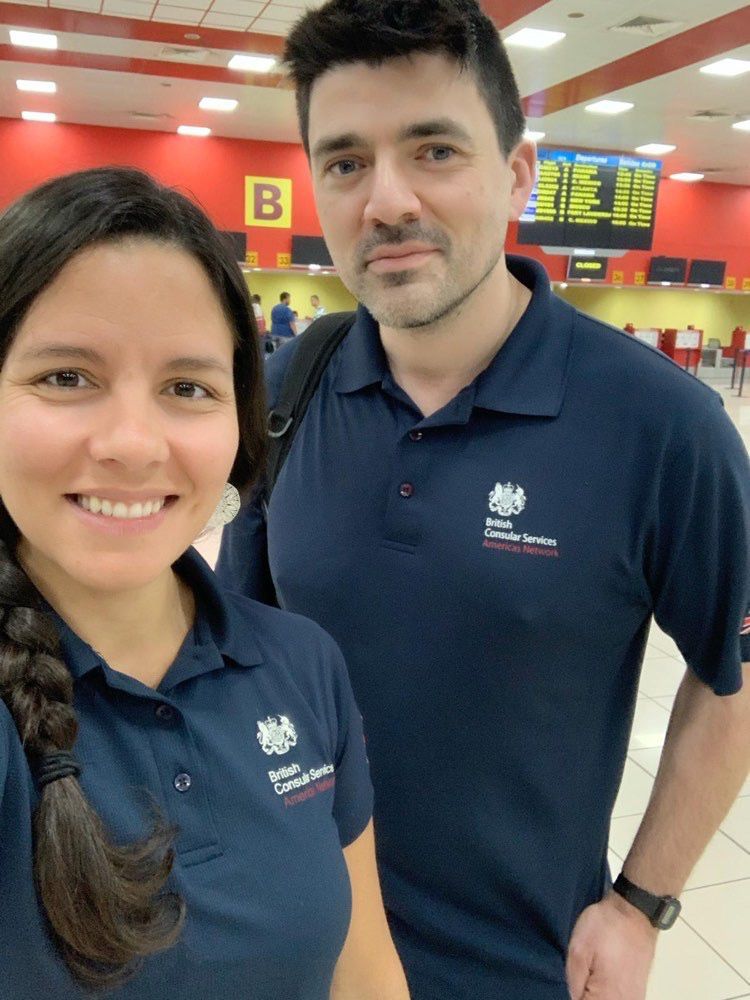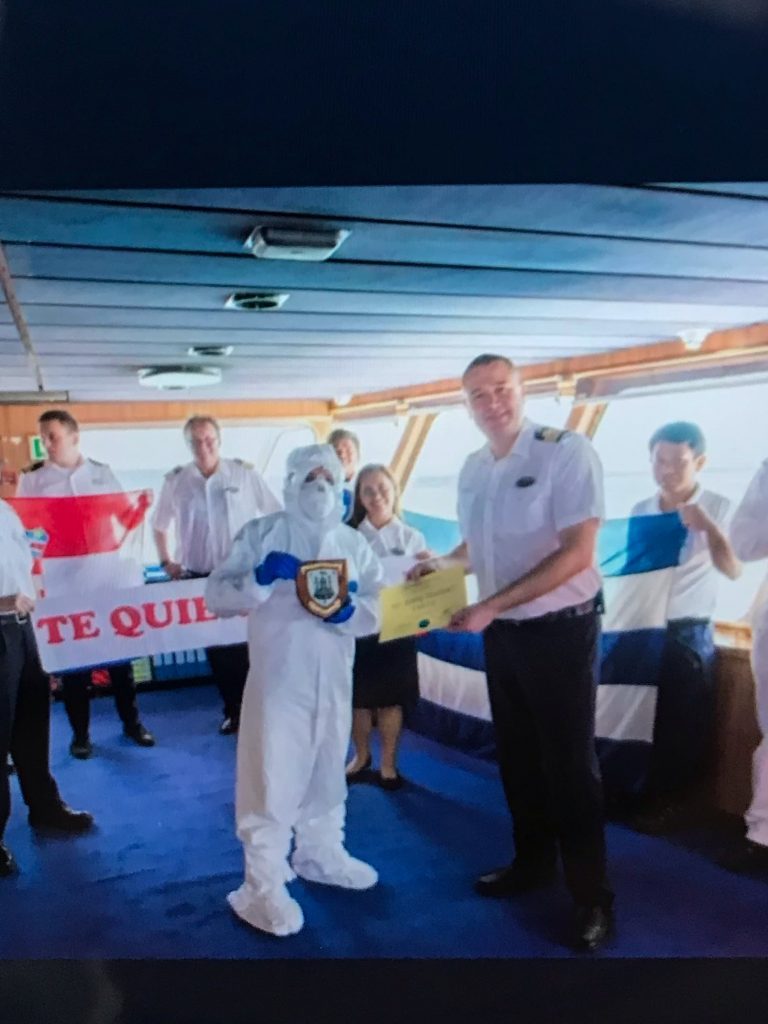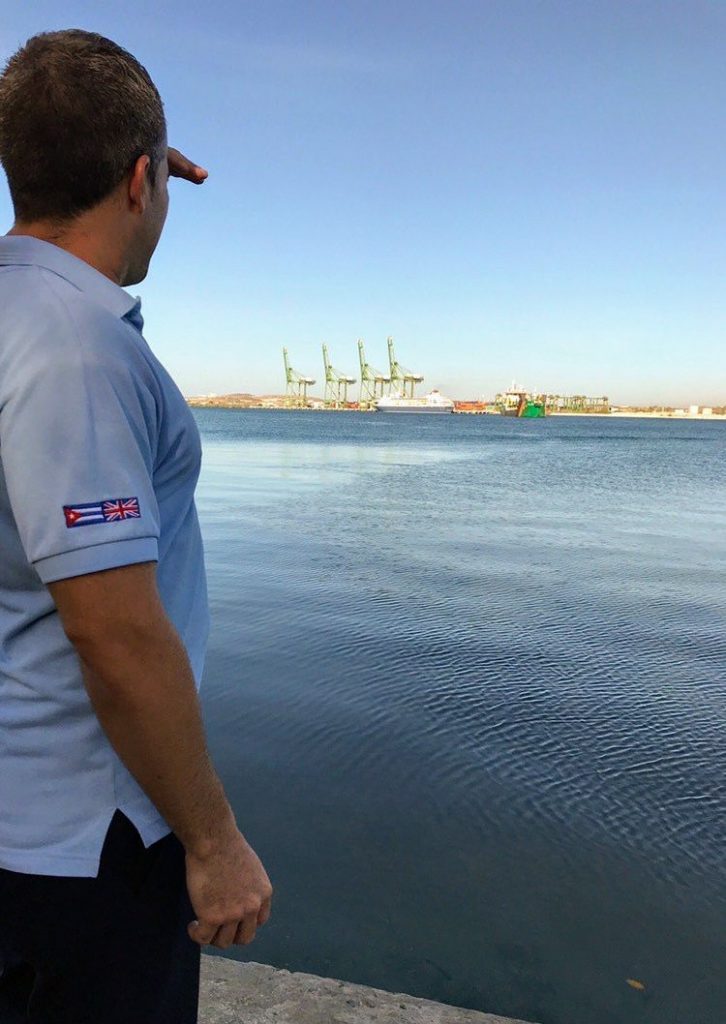COVID-19 Rescue:The Journey to Cuba
Amid the coronavirus outbreak, our consular officers were deployed to Cuba to assist British nationals in need. This is the story of what took place on the ground, from behind the scenes.
People is one of the three pillars on which the 55 Parallels campaign is built. This is because they are the life force of our shared story: from our ground-breaking innovations to the values that shape our international visions. These links have been built over centuries, and today they are sustained by hundreds of thousands of our people travelling between our two countries to work, live, study, collaborate or explore. For this reason, supporting our citizens abroad – from issuing emergency travel documents to helping victims of crime – is a key part of our governments’ work overseas.
Consular assistance also includes help for those affected if a crisis occurs abroad, and in most overseas crises, consular work generally becomes the top priority. Recently, the coronavirus pandemic has resulted in unprecedented demand on both the UK and Canadian consular teams who have looked to cooperate wherever possible. This has included the regular exchange of information to improve situational awareness, the inclusion of British citizens on Canadian repatriation flights and vice versa. The cooperation between our countries, which extends beyond consular, during this crisis, has been helped by having secondments from our respective foreign offices embedded in each other’s crisis response teams.
In Canada we have a team of five staff across the country to help British nationals in Canada who require consular assistance. On top of their regular work, our consular officers have volunteered to be a part of the Foreign & Commonwealth Office’s Rapid Deployment Team. This means that when a crisis breaks out somewhere in the world, our global network is ready to respond. Members of the Rapid Deployment Team can then offer resilience to other countries in the region that require additional resource. Furthermore, Ottawa is home to our regional consular manager and the second of our two global call centres (the other is in Malaga) who handle consular enquiries from around the world. The UK in Canada consular team, therefore, plays an important role in the UK’s wider consular response.
In this 55 Parallels story, our consular officer in Ottawa, Jody Beeching, blogs on his recent deployment to Havana (alongside his colleague, Raquel Gallego, from our consulate in Vancouver) to support our colleagues there providing consular assistance to British citizens disembarking from a cruise ship that had been hit by the coronavirus
A blog from Jody Beeching, Consular Officer at the British High Commission Ottawa
I’m lucky enough to love my job and I take my responsibilities seriously. The consular teams are one of the few public-facing parts of the FCO and working to support British nationals overseas (Canada in my own case) is a varied and often challenging role. Sometimes my task might be issuing an emergency travel document to get someone home, or perhaps running a ceremony at the High Commissioner’s residence for a Canadian acquiring British Citizenship. Covid-19 has completely changed how consular services are delivered, and set many new precedents. It’s too early to say what things will look like for us ‘afterwards’, but it’s fair to say I never envisaged being part of an operation that provided support on such scale, or involved such close work with the host nation.
Growing up in the UK, Cuba never figured largely in my education or my imagination. Cuba was a backdrop for two James Bond films, for the second ‘Godfather’ movie, and they made cigars. We learned about the 1962 crisis briefly in school, I saw plenty of Che Guevara images on t-shirts and posters in University, and that was about it. I’d imagine that the experience of most Brits my age was comparable. I didn’t know any British people of Cuban descent, and engaged in a very limited way with my father’s love of Graham Greene novels and vintage automobiles.
Years in Canada changed this for me. The Cuban Embassy is a 15 minute walk from my home, over a million Canadians travelled to Cuba in 2019, and the island is a particularly popular destination for Quebecois holidaymakers. Canada has maintained uninterrupted diplomatic relations with Cuba since 1945 (Interestingly, pre- 1945 Canada was represented in Cuba by the British Legation),and after the US and Spain, Canada has the largest Cuban immigrant community in the world.The first Terry Fox Run outside of Canada was in Cuba, and is the largest non-Canadian one to this day. The much- publicized friendship between Trudeau Senior and Fidel Castro, and Canada’s contribution to US-Cuba negotiations in 2014 means Cuba is absolutely a part of modern Canadian political consciousness.
One night my phone rang and a colleague asked if I would consider an emergency deployment beginning Sunday, either to the Bahamas or to Cuba, we weren’t sure yet. A cruise ship of mostly British passengers was seeking to dock urgently after multiple cases of Covid-19 were confirmed on board. They had been turned away from the Dominican Republic on February 27th, and had been at sea since then, with conditions on board deteriorating, and a scramble to find a port that would accept them. Several nations refused.
Another call confirmed that we would be going to Cuba, authorities in The Bahamas had refuelled the ship but would not allow passengers to disembark. Taking a different approach, Cuba had stated that they would allow the ship to dock, and would work with the UK to safely evacuate the passengers. Colleagues from all over the world were thus deployed to Havana to assist our Embassy there.

When I booked my ticket, international flights were starting to get cancelled. A friend at Air Canada asked if I had a return flight booked and suggested that I ‘pack a little extra just in case’. I travelled through two near-empty airports and ‘Team Canada’ (myself and the wonderful Raquel Gallego from Vancouver’s Consulate) arrived in Havana very early on Monday morning.

The Cruise Ship, MS Braemar, would arrive at Port Mariel, a short drive from Havana, on Wednesday at the crack of dawn. Cuban authorities would lay on buses to take the passengers- with an average age of 71- to a specially adapted terminal, and four British airways flights- one set up as a medical transport- would bring them home.
It was a privilege to be waiting at Port Mariel with a Cuban colleague from the Embassy, and the dock workers, as Braemar tied up just after sunrise. Prescription medications and PPE were delivered on board and the Ship’s Master read the passengers and crew the plan and their instructions for the day (the passengers had been fed a good breakfast, and the bar had been closed early the previous evening as a precaution). The stevedores who caught the ropes thrown from the deck of the Braemar, and the men who delivered the medications, were sent to special quarantine zones immediately. The ship’s captain received an award from the Cuban government in a skype ceremony.

Throughout the afternoon and late into that night, Cuban staff drove coaches loaded with passengers in convoy to the airport, one convoy per flight. Our team divided among the dock, the embassy and the airport, and eventually we all watched and waited as passengers ascended the stairs to the waiting planes. They did this largely unassisted due to the risks of infection, and given the age and mobility of the group, some took longer than others. Watching an older person falter on the steps now and again was the hardest part of the process for me. I had lost my own father less than 6 weeks previously, and I knew the feeling of being poised to steady someone after a stumble, or to offer reassurance after confusion, none of which was possible here, as we had been given strict guidelines by the Cuban authorities.
It was almost 2AM when the last plane- the medical flight- took off. It was a good moment. Over drinks afterwards we toasted the Cuban colleagues who had made it possible and I thought about the different ideas myself- as a Brit and my Vancouver colleague –a Spanish Canadian dual national- had about this country.

So far we hadn’t had any time to ourselves, or to see Havana, so on my last day I rose early and- as I always like to do when I travel, visited the Commonwealth war graves. This is easily done in Havana as there are only 3 servicemen buried here, One British and two Canadian, brought here by what turn of events I do not know- please write to me if you do. Later we walked through the old part of the city, suddenly empty of tourists as governments everywhere advised their citizens to return home while it was still possible.
Cuban officials escorted us onto the plane the next morning and we flew home, Raquel to Vancouver and myself to Ottawa, a few outlets picked up the story of the Braemar, one of many cruise ships affected at sea, 700 passengers among millions of travellers across the world. I spent two weeks isolating in a friend’s basement and then returned home to my children.
Whilst the story of the Braemar was a relatively happy one, and it was truly humbling to see first hand the generousity of the Cuban people, and the proud tradition of Cuban medical internationalism, it was only today as I write this that the last cruise ship with passengers, the Costa Deliziosa. finally docked at Genoa, Many are still at sea with only their crews, Filipino citizens the most numerous among them, and their future is unclear. Hopefully the same kind of international cooperation, and solidarity that helped the passengers aboard Braemar return to their families, will be shown in the repair and rebuilding that is ahead. And on a personal level, whether it’s from my native or my adopted country, I look forward to seeing Cuba again in happier times.
ENDS
Notes:
– The Braemar arrived safely at Southampton with no severely ill crew members on March 31st 2020, 3 weeks after the evacuation. Onward travel for the crew members to their home countries was arranged.
– In late March, the Canadian government was considering a request by Manitoba First Nations to allow Cuban doctors into Canada to assist their Southern Manitoba communities with the sickness.
– 43 Cubans, including steverdores, drivers and the mariner who piloted Braemar into Port Mariel were quarantined, all have since been released without illness.
– As of April 23rd, Cuba has 1,189 cases of Covid 19 and 40 Cubans have died.
